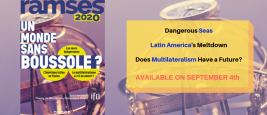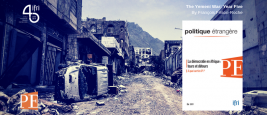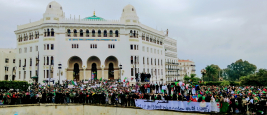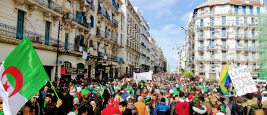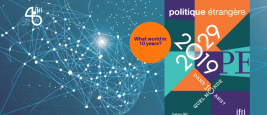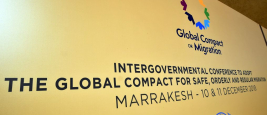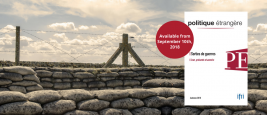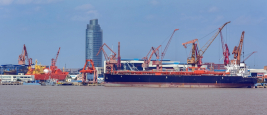RAMSES 2020. A World without a Compass?, written by Ifri's research team and external experts, offers an in-depth and up-to-date analysis of geopolitics in today’s world.

Middle East / North Africa
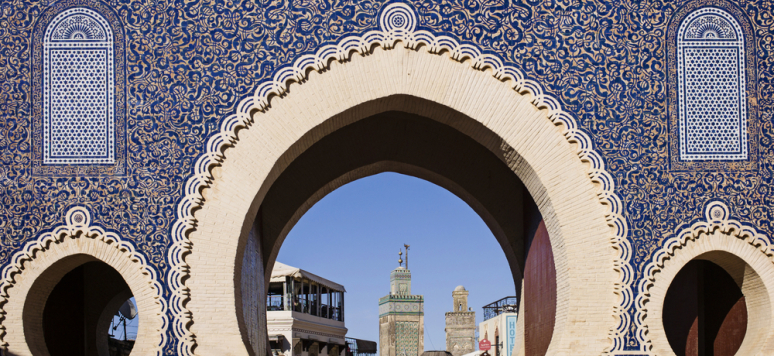
The Middle East and North Africa Programme at IFRI aims to provide expertise on the trends and developments in politics, societies and economies across the region.
The programme has the following objectives:
- Proposing a new approach towards the MENA region through an analysis of local, regional, and international dynamics with the potential to guide and influence new policies ;
- Highlighting the role of foreign powers which have traditionally been present in the region and analyzing the new role taken on by emerging countries ;
- Anticipating new directions and outlooks in each country;
- Interpreting risks and potentials and puting forward new templates for analysis.
The programme has built a dense network of researchers and experts who provide expertise on the MENA region and working together on a range of crosscutting themes.
Senior Research Fellow, Head of Ifri’s Türkiye and...
Research Fellow, Türkiye and Middle East Program
...Associate Research Fellow, Türkiye and Middle East...
Senior Advisor for North Africa and the Middle East
Research Interests:
- North Africa
- The Middle East
Associate Research Fellow, Türkiye and Middle East Program
...Associate research fellow, Turkey and Middle East Program
...Airports in the Gulf emirates are major transit hubs in global airline networks today. Apart from their “advantageous” geographical location, their development results primarily from the ambitions of political actors seeking to maintain their power. This has led especially to the creation of...
The war in Yemen has entered its fifth year, and the situation is more complex than ever.
The Shifting Foundations of Political Islam in Algeria CARNEGIE Middle East Center Paper, April 2019
Understanding Algeria’s various Islamist communities—including militant groups, moderate factions, and grassroots movements—offers a window into the country’s uncertain sociopolitical future.
Since February 22, thousands and then millions of Algerians have taken to the streets every Friday to protest against the fifth term of their ailing eighty-two-year-old president, Abdelaziz Bouteflika.
The last four decades have witnessed the profound transformation of the very foundations of the international system: the globalization of trade, technical revolutions, the upheaval of the hierarchy of powers, the emergence of China, the explosion of the Middle-East, the mutation of conflicts...
The “Global Compact for Safe, Orderly and Regular Migration” was adopted in Marrakesh on 10 and 11 December 2018, after 18 months of consultation and negotiation. It is presented as the first United Nations’ agreement on a comprehensive approach to international migration in all its aspects....
How do we get out of wars? One hundred years after 1918, Politique étrangère’s special report takes up this question from different perspectives in relation to the conflicts in which Western armies, willingly or otherwise, are embroiled.
The leaders of Iran nurture regional ambitions, and are conscious of the limits of their country’s power.
Over the past decade, an increasing number of emerging markets has joined the liquefied natural gas (LNG) import club.
Aucun résultat









